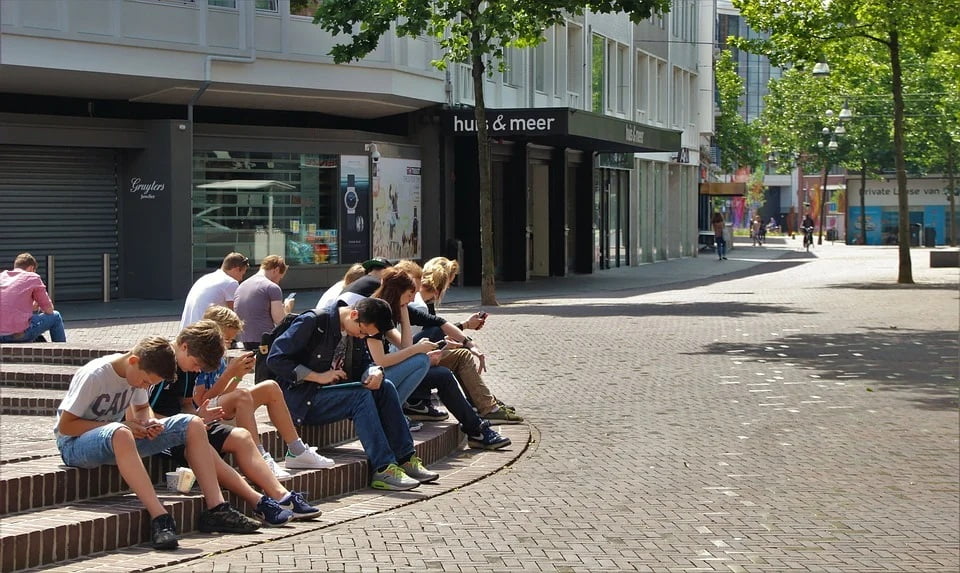The teenage period is a time of significant transitions for almost all teenagers. It is characterized by hormonal changes, mood swings, and erratic behaviour patterns that often conflict with their parents’ view of the world. While teens go through physical changes, they also experience psychological, emotional, and social maturation. However, these teenage problems can often make them feel like they are “going crazy” or simply misunderstood.
Talking to your teen about their feelings and emotions is essential, but dealing with growth issues needs a different approach. Parents have to approach their teens carefully, thoughtfully, and gently, taking into consideration that teens are going through many changes within themselves. In addition, it is vital that parents talk in a friendly manner when discussing the situation so that the teen does not feel belittled or attacked by their parents. More than anything else, communication can prove to be the best way to deal with this concern.
Below are some of the typical teenage problems
we have listed for you to understand what your child is going through:
Bullying
Social media has become a place where teens gather to bully each other out of their minds and have fun doing it. Bullying is a serious issue that affects many kids and young adults. There have been multiple reports of mass suicides and other attempts following cyberbullying. Bullying often starts as funny and cruel comments but quickly turns physical.
Many cyberbullies also stalk their victims in order to intimidate them into silence or running away from them. Many victims report that their lives have been turned upside down by these cyber bullies. Some launch vicious attacks on others in attempts to get back at them for perceived slights or rebuffs. This teenage problem can cause depression, anxiety, stress, and even addiction in some vulnerable individuals.

When your child is being bullied, it’s never easy to talk to them. They may feel helpless, ashamed, or angry. You also may be too angry or embarrassed. It’s crucial that you address the problem calmly and rationally. It can be helpful to tell your child you don’t want them to feel like they have to put up with bullying or discuss why someone is being bullied. Maybe your child needs to develop a thicker skin and brush it off, or perhaps they need some support from another person to make it through a challenging situation. In either case, having a conversation where you establish acceptable behavior and set expectations is essential for helping a child develop healthy coping skills.
Drug Use
One in five adolescents has tried an illegal drug within the past year. One in ten have used cocaine, heroin, or LSD, according to a recently released national survey by the National Institute on Drug Abuse. LSD was the most frequently used illegal drug among adolescents, followed by marijuana, methamphetamine, and cocaine. Marijuana remains another teenage problem among teens for its potential for psychological benefits. Many believe that marijuana gives them a sense of euphoria, helps them relax, reduces school stress, and increases motivation. Additionally, some see the drug as less harmful than alcohol and even cocaine.
As part of your parent-teen activities, make sure that you schedule frequent conversations with your teen on the dangers of drug abuse. It’s important to realize that drugs are prevalent everywhere around you. They’re not always found in the back alleys, but in every street corner and a school hallway. You should let them know that drug abuse is not always a choice, and it can happen easily. One pill can turn into a handful of pills in a matter of months. Share your concerns openly and listen to what your teen has to say. Take some time to get to know them better. If your teen is already experimenting with drugs, you must approach this topic in a way that relates to them. The better you know your teen, the better equipped you’ll be to help your teen avoid the risks of drug use.
Alcohol Use
Research has shown that alcohol consumption among young people aged 15-19 has been trending upward. Youth adults have admitted to binge drinking within a two-week range and more than one-quarter of all high school students admit to drinking five or more drinks per occasion within the previous two weeks. This trend has led to an increase in alcohol-related problems, including motor vehicle crashes, sexually transmitted diseases, and violence.
Adolescents are particularly vulnerable to the negative consequences of alcohol abuse, including cognitive impairment, behavioral issues, and trauma/injury. Alcohol use in teens and young adults can impair judgment, perception, and reaction time. These effects can lead to injuries and accidents. In addition, they may contribute to risk-taking behaviors that can carry into adult life, such as violence, unsafe sex practices, driving under the influence of alcohol, and criminal involvement. Therefore, early intervention requires to reduce excessive alcohol use among young people.
It’s important to talk to teens about the dangers of underage drinking, especially ones who might be at risk themselves. It’s also important to educate them about the dangers of alcohol abuse, which is why it’s important not to make excuses for why kids might drink alcohol. There’s a lot of alcohol available to kids in these days of tight budgets. (buy xanax turkey) It’s vital that parents know how to talk to their kids about this teenage problem —especially when it comes to the possibility of using alcohol or other drugs while having fun.
Parents must monitor their children’s drinks and teens who choose to drink excessively. Through constant communication with your teen, you can educate them about the importance of staying safe while utilizing alcohol.
Obesity
Obesity among children has become an epidemic and is creating a snowball effect in society. The issues that teenagers are facing today may form the mentality they have towards health as adults. Obese children tend to gain weight faster and are more limited to participating in certain activities because of their excess weight.
It’s best to talk to your child’s pediatrician about the ideal weight and body mass index (BMI) for your teen based on their height and age. And find out if they are recommending a stricter diet and more exercise as well. Many parents are unaware that they can ask their pediatrician for general health advice on various topics, including nutrition, immunization schedule, and obesity-related issues. They can also refer parents to qualified healthcare professionals such as nutritionists, physical therapists, and pediatrics specialists.
You can also encourage your child to get active and find ways to stay active. It’s time to sign your teenagers up for those free summer activities. Free fitness classes can put teens back in shape and give them a sense of enjoyment in their daily routines instead of just thoughtfulness towards appearance.
Peer Pressure
With the passage of time and the advancements in technology, peer pressure has become more of a teenage problem than ever. We are faced with a world where teens are pressured into doing things they may not want to do based on the expectations of others. Social media is rife with opportunities for predators to gain access to the accounts of kids and young adults who they would otherwise not have been able to access. These predators use social media as a tool to isolate victims, instill fear in them, create a climate of fear in which they will comply with whatever the predator tells them to do, and generate revenue through advertising campaigns that YouTube or other social media platforms won’t flag as cheating.
Most teens try to fit in with their peers, but this can put them at risk for dangerous activities. It’s a parent’s job to build self-esteem and confident decision-making skills and model good behavior for kids. And, if you talk with your teen about making mistakes, they will be better able to deal with peer pressure when it occurs. Without parental guidance or assistance, some children may make poor choices. They must be able to come to you when they make a mistake so that you can help them. Otherwise, they may end up with criminal charges that needlessly could impact their whole future.
Final Thoughts
The teenage years are a crucial phase in a person’s life that should not be rushed or taken lightly. Every teenager deserves a dose of good advice and good luck; however, not all teenagers get the guidance and support they need. Whether they affect your relationships with other people or make it difficult for you to concentrate at school, you mustn’t ignore them. Teenagers need to hear that their feelings are valid and that they aren’t alone. Of course, they will make mistakes. It is naive to expect them to have a spotless record. The best thing they can do is learn from their mistakes and develop better judgment in the future.
One way to accomplish this is to provide unconditional love and acceptance. Having conversations with teens about teenage problem can feel uncomfortable. It is important to remember that everyone goes through some growing pains as they transition from an almost-child to a full-blown teenager. The key to managing conflict with your teen is to plan ahead. This can only be accomplished if both parties are inclined to communicate openly and honestly.










